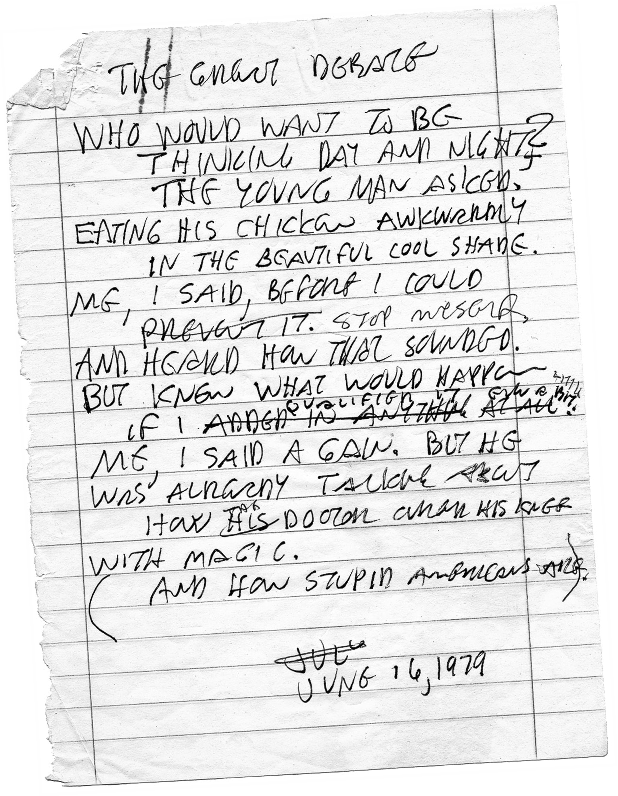 |
Jack Gilbert ms.
(The Paris Review) |
A few minutes ago I was reading how some Russians still search for ways to
praise Stalin (Stalin, responsible for 60 million deaths and an astonishing repercussion of collateral damage). That kind of impulse comes from a twisted understanding of bravery and greatness. It believes in the massive iron statute rather than the flesh and blood mere human.
And then I chanced on this poem by Jack Gilbert, whose poetry was often about just that, the daily effort, which he praised, or if not strictly praised (praise can be sentimental), acknowledged. Knowing we are witnessed and acknowledged helps us carry on. The evil
demand tribute. The rest of us just want someone to notice we're alive and trying to do our best (a best that is hugely flawed).
Here's
The Paris Review interview with Gilbert. And below is a poem of his offering a style of wry and honest praise of "normal excellence." Gilbert's
Collected Poems has just been published by Alfred A. Knopf (link below).
The Abnormal Is Not Courage
The Poles rode out from Warsaw against the German
Tanks on horses. Rode knowing, in sunlight, with sabers,
A magnitude of beauty that allows me no peace.
And yet this poem would lessen that day. Question
The bravery. Say it's not courage. Call it a passion.
Would say courage isn't that. Not at its best.
It was impossib1e, and with form. They rode in sunlight,
Were mangled. But I say courage is not the abnormal.
Not the marvelous act. Not Macbeth with fine speeches.
The worthless can manage in public, or for the moment.
It is too near the whore's heart: the bounty of impulse,
And the failure to sustain even small kindness.
Not the marvelous act, but the evident conclusion of being.
Not strangeness, but a leap forward of the same quality.
Accomplishment. The even loyalty. But fresh.
Not the Prodigal Son, nor Faustus. But Penelope.
The thing steady and clear. Then the crescendo.
The real form. The culmination. And the exceeding.
Not the surprise. The amazed understanding. The marriage,
Not the month's rapture. Not the exception. The beauty
That is of many days. Steady and clear.
It is the normal excellence, of long accomplishment.
_____________
Jack Gilbert,
The Collected Poems, Knopf, 2012











